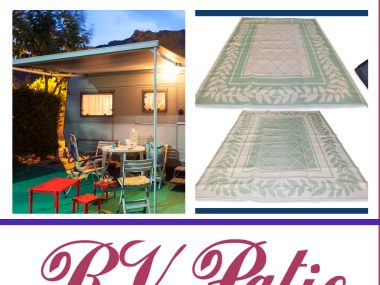Even though you love being spontaneous while riding an RV for a road trip, getting prepared for living in a camper in the winter is still necessary.
Going camping during winter or cold weather may sound uncomfortable for most people.
However, if you have prepared yourself and brought the right kit, it will be very rewarding and unforgettable.
If you are interested in trying to live in a camper during the winter months, do not miss the dos and don’ts that have been listed below.
Contents
Essential Tips to Live in a Camper during Cold Winter
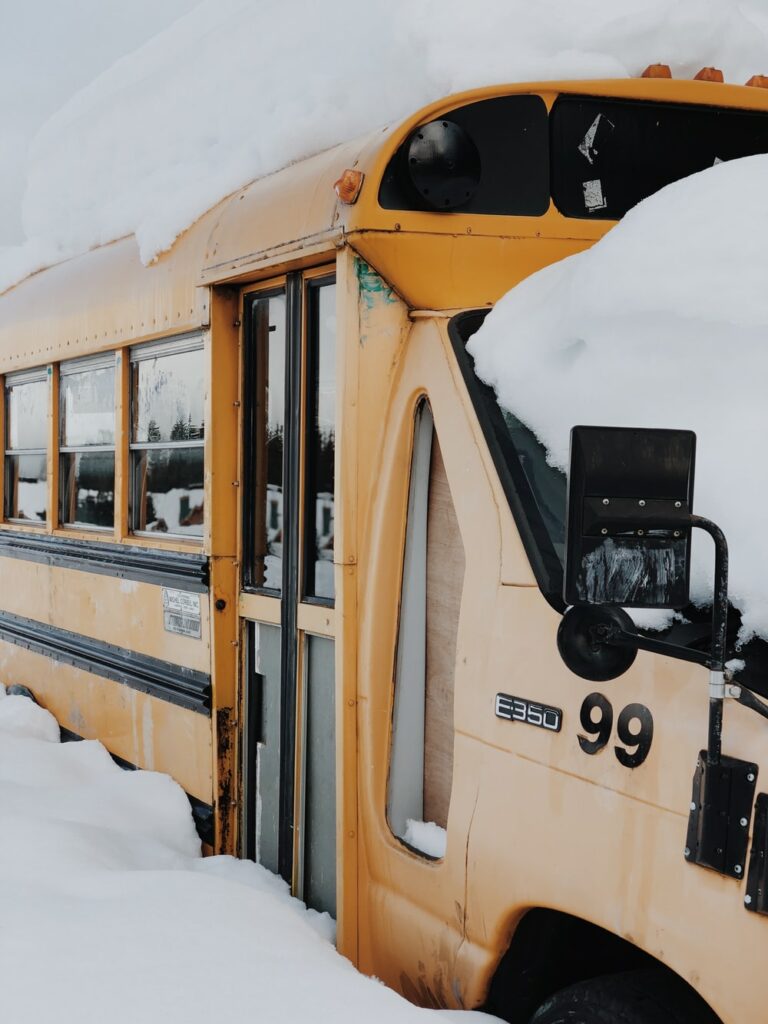
An important thing to enjoy a winter camping trip is to get a small RV or campervan instead of renting the large one.
A tinier campervan becomes the best RV for winter living as it allows you to keep the interior warm effortlessly.
Different from the bigger models, there are not wide-open space, large windows, and high roof in its rig.
Living in a camper in the winter with a small RV seems great. It can ensure that the warm air to circulate down on the floor with you instead of on the high ceiling.
If you cannot give up spacious room in your large RV, consider separate the rig into some smaller areas. This will help to decrease the amount of room you have to heat.
Instead, you can simply stay in a specific smaller area and heat it quickly. A heavy curtain makes a great item to help you divide the van straightforwardly.
- Improve your comfort
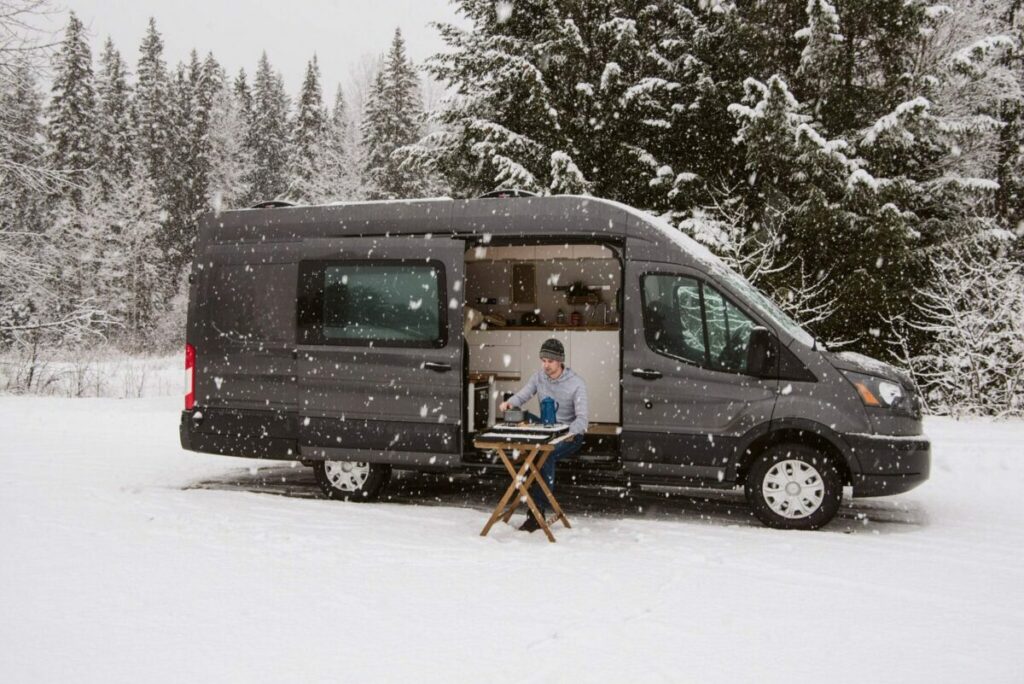
Boost your comfort levels while living in a camper in the winter by taking care of the van’s insulation.
You can increase the insulation of your campervan by attaching skirting and insulated pipe foam. Adding thick carpets to the floor will help to trap heat inside the rig as well.
Since windows can be the source of heat loss, consider utilizing thermal curtains to cover them. You can use the drapes to reduce the amount of room to heat as well.
If you plan on doing a DIY RV conversion before your road trip, keep wall’s insulation in mind during build stage.
Get insulation materials when you are planning on living in a camper in the winter. These items should offer the best thermal performance.
- Consider installing a solar system
Aside from summer, you can also take advantage of a solar system when living in a camper in the winter. Be sure that it can provide energy for your RV batteries even on a cloudy day.
This power system offers a fantastic solution for recharging small electric devices. Also, it will be advantageous if you plant to camp on somewhere without a reliable electrical supply.
Otherwise, installing solar panels is probably not essential.
If you are interested in installing DIY campervan solar systems, make sure to read a complete guide regarding this project.
Furthermore, you should understand the entire setup to get the best of it.
- Keep the camper warm
Knowing how to keep a camper warm in the winter is another basic point if you want to stay comfortable during the cold weather trips.
Depending on the system you draw on, it is no secret that heating your campervan requires a lot of fuel and energy.
However, once you are at a set temperature and do not undergo much heat loss due to poor insulation, keeping your campervan warm is somewhat cost-effective.
When you are living in a camper in the winter without good insulation, consider heating your rig as needed since it tends to be lost fast through the floor, walls, and roof.
You can take some kinds of fuel to heat your RV, including electric, diesel, wood, and propane.
When selecting the heating type, take fuel availability into account, particularly if you want to travel abroad or in remote locations.
- Don’t let the batteries frozen
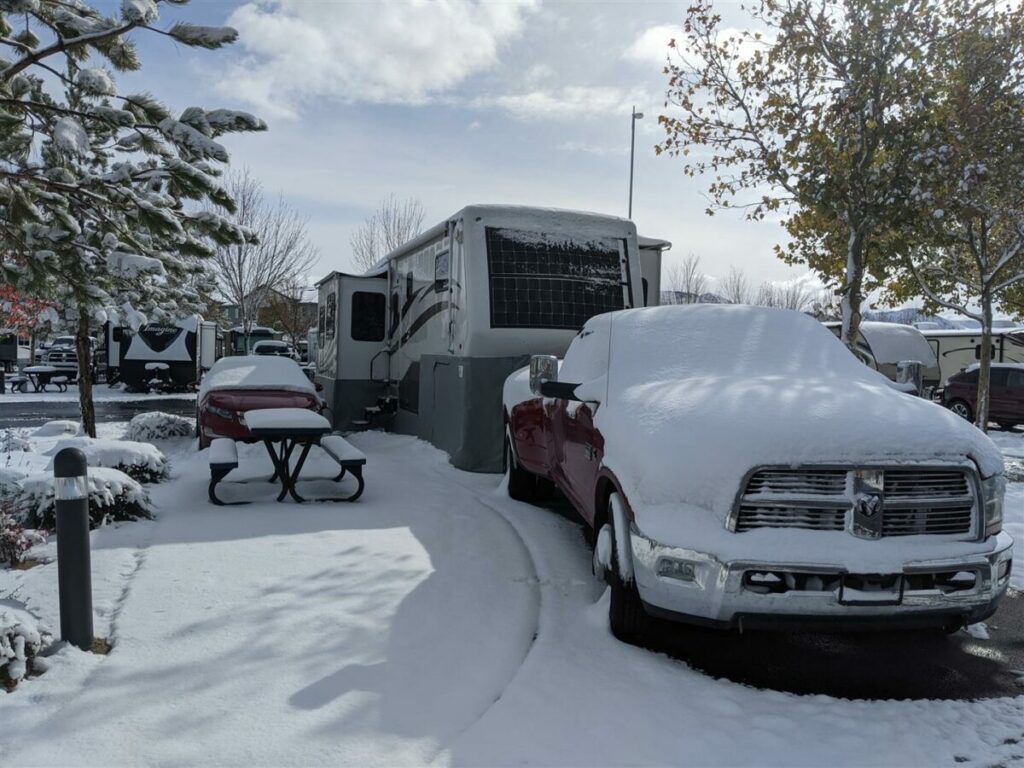
Keeping your RV batteries warm is another key point when you are living in a camper in the winter. Doing so is more critical when low temperatures last for several days.
Compared to a discharged battery, a fully charged one will freeze at a much lower temperature. Hence, you should keep it topped up to withstand the cold and preserve its energy.
In case you plan on spending your road trip in the cold winter, make sure to check the specification of your batteries before purchasing.
It will help you indicate the freezing temperatures at various states of charging.
Do not forget that every type of battery will respond differently towards coldness. For instance, AGM batteries tend to freeze at much higher temperatures than lithium-ion ones.
- Protect your water tanks from freezing
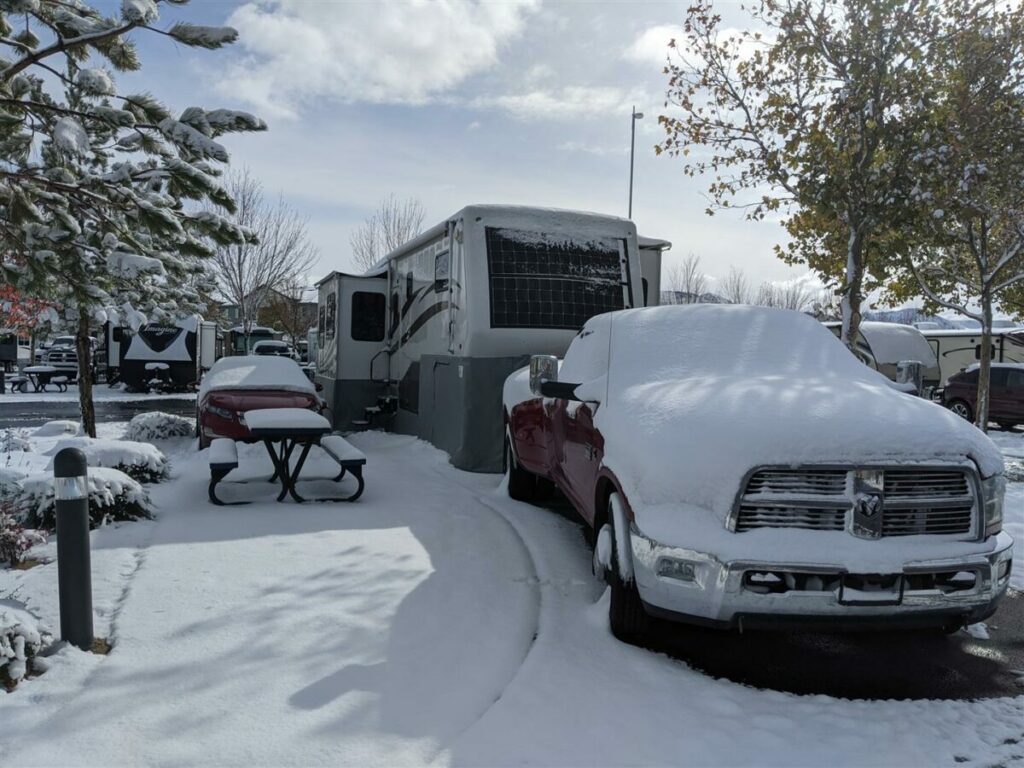
Aside from your batteries, you should protect your water tanks from freezing too. You will not want to start your day without a cup of morning coffee or tea.
Besides, frozen water supplies can result in burst pipes as well.
As you are living in a camper in the winter, using an electric space heater is an ideal solution to prevent freezing.
If your RV water system is outdoors, it is reasonable to be fret since keeping the inside temperature above zero degree Celsius will not help much.
Instead, you should consider having RV skirting to provide additional level of protection. Then, make sure to keep the tank about three-quarters full since it can slow down the water to freeze.
- Stop condensation
Believe it or not, condensation is like an enemy for your motorhome or RV as it can lead to reduced health and decay when left unchecked.
You will not want to wake up from your campervan and see water running down inside of the walls, windows, and any cold surface there.
In this view, living in a camper in the winter is better when you have good ventilation as it can avoid condensation and keep your rig comfy.
The most reliable RV ventilation is to install some electric roof vents since they can guarantee steady airflow without draining your batteries.
It is also important to lessen water vapor inside your campervan to prevent condensation. Keep in mind that showering, cooking, and any form of heating can add to the issue.
- Go to somewhere warmer
How much does it cost to heat a camper during cold winter months?
You probably want to use this question as one of the considerations before relying on a particular heating system for your van.
While heating a camper can be cost-effective with the right practices, you are still capable of minimizing the budget by going to somewhere warmer.
This is also more recommended if your campervan is just not built to maintain your convenience during the winter days.
Instead of living in a camper in the winter, try heading to southern hemisphere and find a wonderful destination for your road trip.
Things Not to Do When Living in a Camper in the Winter

While practicing all the above good habits to live in a camper during cold winter months, you should be aware that there are some things not to do as well.
Trying to travel when it is snowing is the most obvious thing that you should avoid as it can be dangerous.
However, if you already plan on driving your RV while it is snowing, consider rescheduling the trip if possible.
Instead, you can stay in your current campground or go to a nearby hotel for the night.
- Do not cook inside a campervan
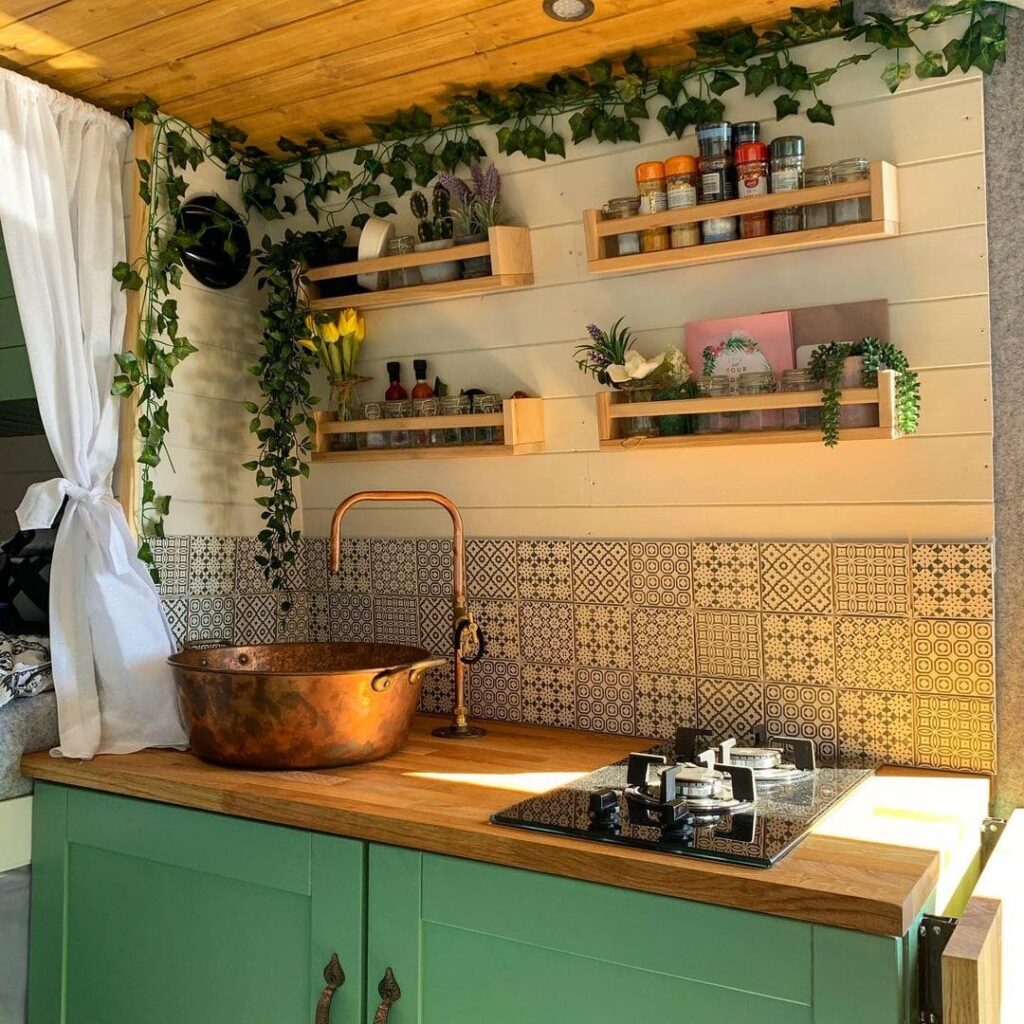
Cooking inside your campervan is something you should avoid as it can create water vapor that increases the chance of condensation.
If you assume that it feels like cooking is warming your campervan up, think again.
It is only a short-term gain, but the long-term result of condensation will be something you will not want to deal with.
In case you cannot avoid cooking inside your campervan, make sure to keep good ventilation to remove the water vapor.
For a better practice of living in a camper in the winter, you should consider cooking in a pressure cooker instead.
It offers a great way to have quick meals without much water vapor as the other methods.
- Not prepared for unpredictable situations
The key of living a camper in the winter is by getting prepared on everything. If you and your RV are not ready for unpredictable conditions during a cold-weather road trip, it is indeed not wise.
Make sure to prepare everything from a pair of extra gloves to additional propane. Getting RV antifreeze ready in your storage is critical too.
When it comes to propane, make sure you are not running out of this if you do not want to freeze in the cold weather.
Remember that this is your winter best friend that keeps your RV warm.
There are times when things can go wrong no matter how prepared you try to be. Having a ham radio on hand can save your life in situations like this. This small but powerful two-way radio can be easily installed in your RV with mounting brackets and a few screws. You can get help from emergency services or nearby people and establishments with the push of a few buttons. It’s an affordable investment that can give you a sense of security and let you enjoy camper life even in extreme winter.
Winter RV Supplies to Prevent Freezing
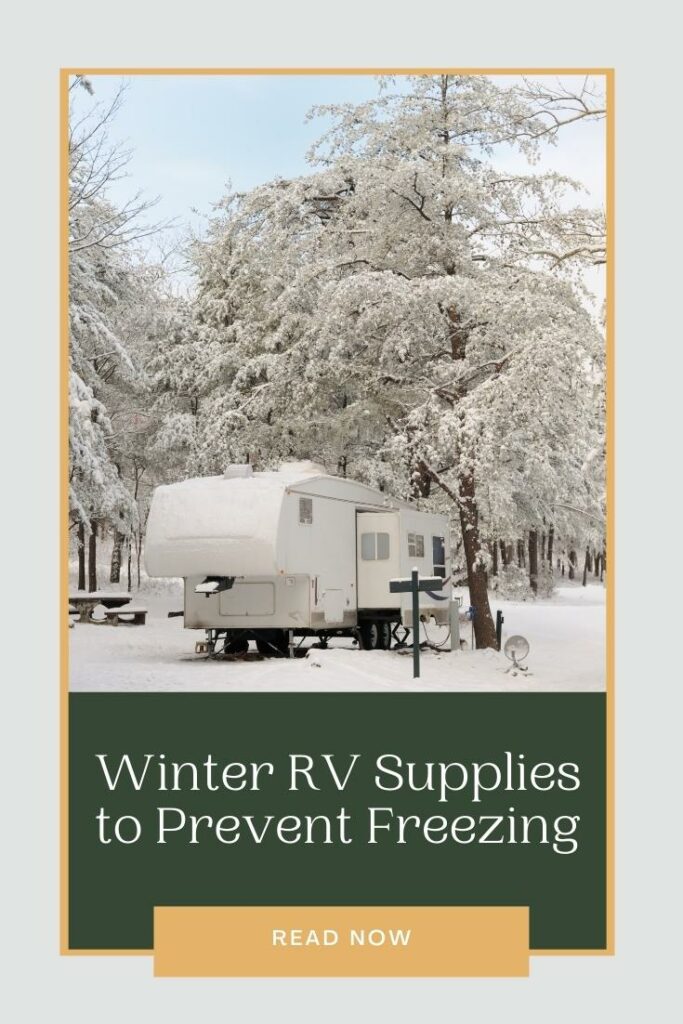
Although you probably do not live in a camper year-round, it is not impossible to plan on going for a road trip during winter.
Then, driving your RV in cold weather conditions requires precautions.
In addition to your winter supplies and essentials, you should pack a few extras to make sure your winter road trip convenient and amazing.
Shovel and ice scraper are among the crucial supplies to bring in the winter. These will allow you to clear away snow or ice that is accumulated around your RV.
- Space-saving heater
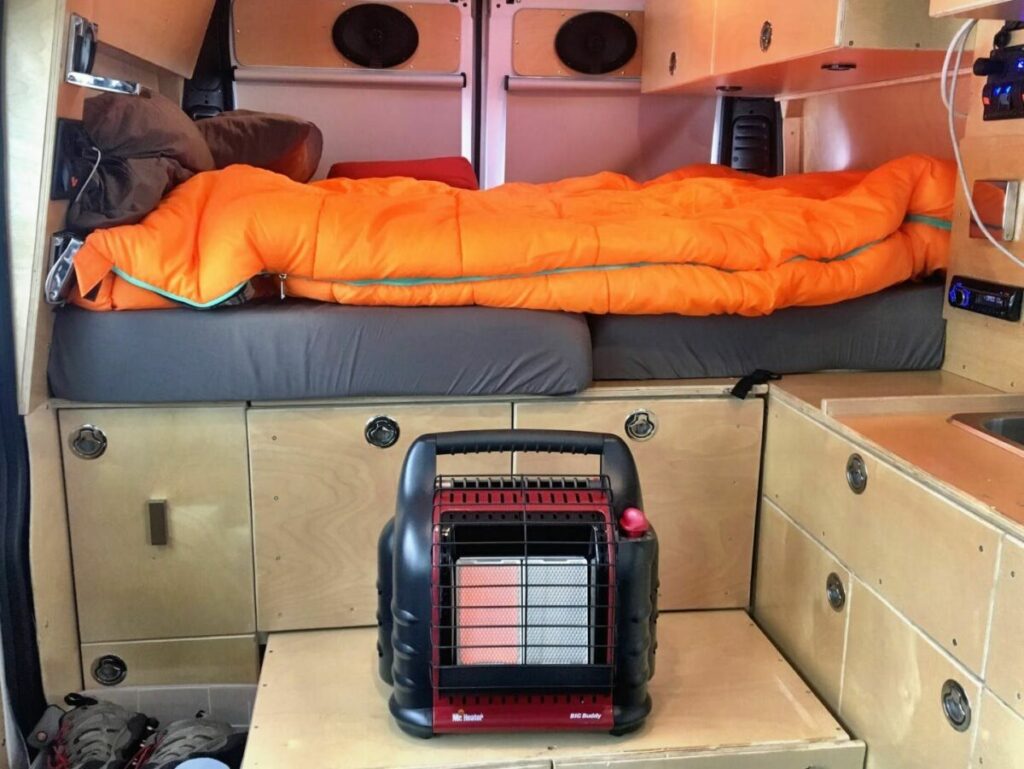
If you are living in a camper in the winter, that original tiny furnace will not sufficient to keep up with the cold-weather camp experience since it can be below freezing temperatures.
For an extra source of warmness, you will love to have a small space heater that is portable and does not take much of your room.
Pick a product from a reliable manufacturer that offers a lot of safety features.
Consider one that can switch off automatically in case any dangerous condition occurs, such as low levels of oxygen or tipping.
- Clear insulator kit
To boost the insulating power up to 90%, you should install a clear insulator kit on each window.
When it comes to living in a camper in the winter, the ‘heat shrink’ type is something you need to find. Consider applying it with no wrinkles so that you can use this kit again next trip.
You can also mount additional plexiglass to make an even thicker obstruction on your windows. However, this supply is not that compulsary if you are not camping in pretty cold areas.
- Good RV skirting for winter
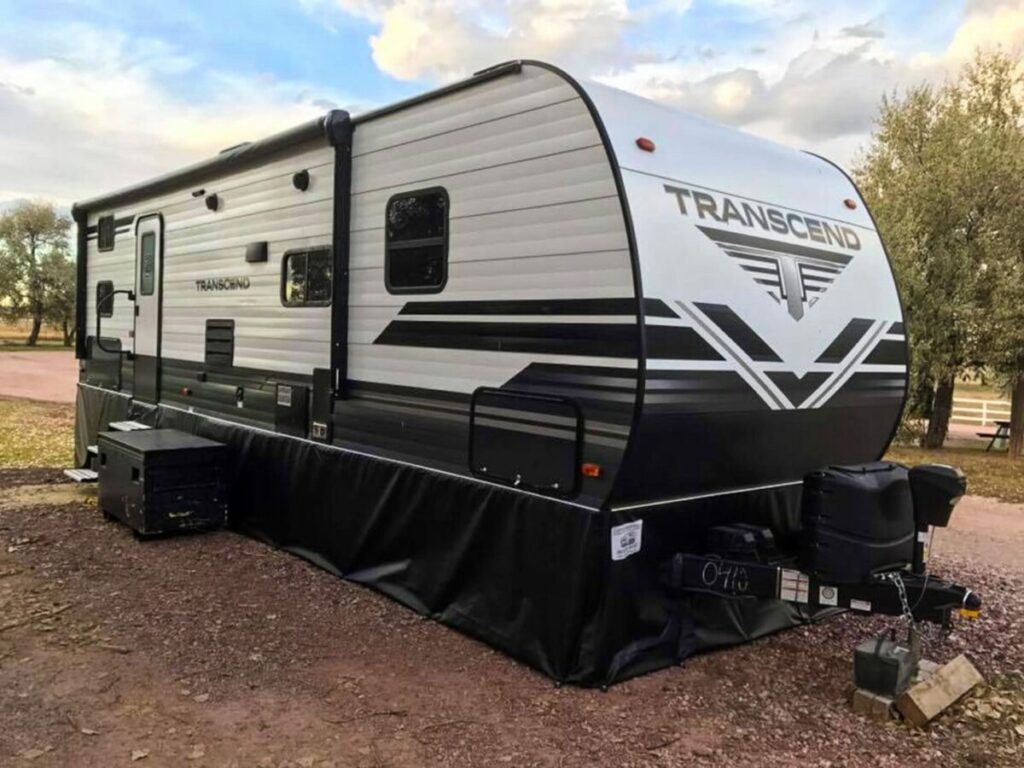
Whether DIY or store-bought, good skirting for your RV is a must for living in a camper in the winter. This equipment will help to make your water tanks and pipes maintain their normal temperatures.
If you want to make RV skirting yourself, foamboards and vinyls make a great ingredient. You just need to find DIY tutorial to create this essential winter supply at home.
In case there is snow in your camping location, try to pile it around your RV skirting as it can help insulate the van.
For you who do not want to deal with DIY RV skirting, do not hesitate to invest in airskirt system. You can set it u no more than 30 minutes and the protection is rather longer than the others.
- Dehumidifier
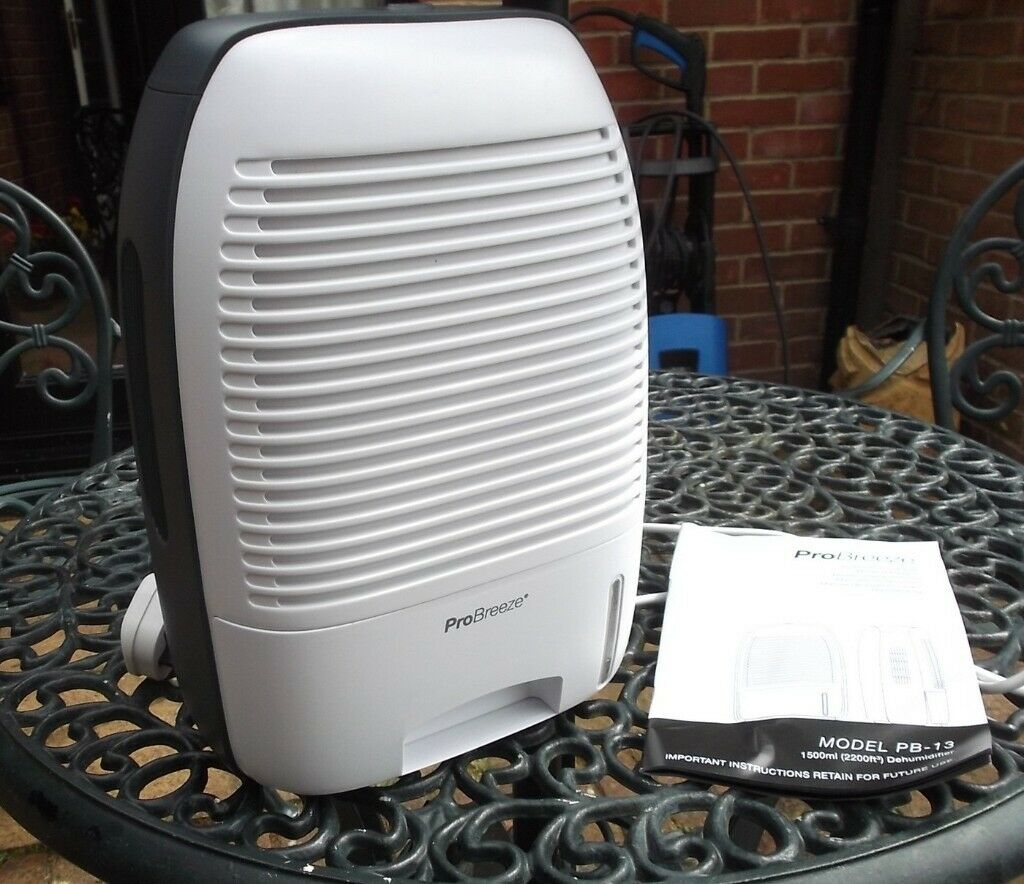
To prevent moisture and mold due to cleaning and cooking activities in your RV, you will need a dehumidifier.
Although it is less likely for you to get much airflow in the winter, dehumidifier will provide you a different method of removing moisture.
Not only is recommended for the winter, dehumidifier is something necessary for a road trip during summer.
- Other essential supplies
Aside from the above RV supplies, you will want to pack roof vent cover for living in a camper in the winter. This will help to insulate your RV and decrease moisture levels inside it.
If you have a side mounted AC unit, consider to get a window air conditioner cover that is particularly design for the cold seasons.
Packing some gallons of antifreeze will be a good idea too, especially if you plan on utilizing your RV bathroom.
Finally, once you have packed everything needed, living in a camper in the winter should not be as uncomfortable as you think. Now, extend your camping season even though summer has come to an end.

